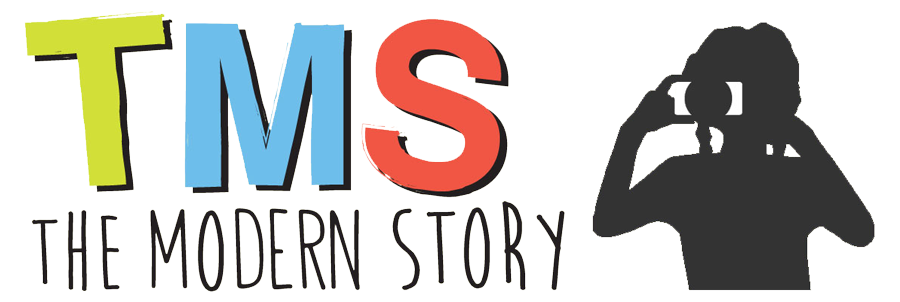Technology and Education develop a student’s sense of the self
The Modern Story based in Hyderabad, India is about to kick off its digital story projects on film. Digital narratives at The Modern Story (TMS) integrate technology into the classroom by teaching creative expression alongside computer literacy skills. One documentary currently underway at The Modern Story is highlighting the railway community´s influence in Hyderabad. The documentary focuses on a lowly employee in an area called Lallaguda who never attended school and was never formally educated. His daughters are now proud graduates from the Railway school where The Modern Story is teaching. One is on her way to becoming a lawyer and the other is enjoying success in college.
Their successes bring to mind a lesson learned from last week’s class. We were critiquing clips on the new iMac that The Modern Story purchased for Railway. In the clip, which touched upon child labor, a boy being interviewed in the street says, ‘No. I want to work. School is useless.’ All the girls immediately laughed at the boy’s statement. They attend a government school which could use some improvement but is successful considering its public status. Yet, all of the girls immediately saw the boy’s statement for what it was: a lie. During moments like these, when the girls are using a new iMac to watch the lives of other children unfold sadly in the streets, I am reminded of the importance of technology in education but for a reason I hadn’t thought of before. When the girls laughed at that boy they participated in the invention of the ‘other,’ conferring upon themselves a certain distinction- They have a chance for a different life than their parents had. Remember, most of these girls are first generation learners! (not first generation college students but actually the first person to attend any formal schooling from their family.) There has been much talk lately about the relationship between invention and technology in entrepreneurship. See below for information about the Ashoka conference that will be coming to Hyderabad February 9-14, 2010. However, as I walk past the ‘vocational training room’ at Railway which is full of dusty sewing machines and enter the ‘Digital Equalizer Lab’ where we teach I can’t help but wonder if the most important link between technology and invention for some communities is the invention of the ‘other,’ a traditionally negative process that in our context gives the girls a sense of urgency in their education – ‘We must succeed!’ could easily have replaced the laughter at the boy on the streets. With this invention of the ‘other’ emerges a positive element in an otherwise divisive notion of students differentiating themselves from children working on the street. They may be their parents’ sons and daughters but they are not their choices. In the beginning of the year I performed a piece of spoken word for the class, called ‘Knock Knock’ by Daniel Beatty where the poet closes with just those lines:
“Knock knock with the knowledge that yes we are our fathers sons and daughters but we are not their choices for despite their absences we are still here still alive still breathing with the power to change this world one little boy and girl at a time. Knock knock! Who’s there? WE ARE!”
With the introduction of technology comes the invention of the ‘other,’ and perhaps, as Paul Auster would continue, the invention of solitude. But these girls have provided a forceful lesson and put an interesting spin on an otherwise unfortunate division between themselves and their fellow citizens: ‘I am therefore I think!’ A lesson that highlights how easily the ‘social’ in social entrepreneurship can be formed or left in the street.
Ashoka: Innovators for the Public are hosting Tech 4 Society, a conference exploring technology, invention and social change, in Hyderabad, India, in February 2009. Find out more about the conference here. This blog post is an entry in their competition to find the official blogger to travel to and cover the event. Danny is a 2009/2010 Fellow with The Modern Story
